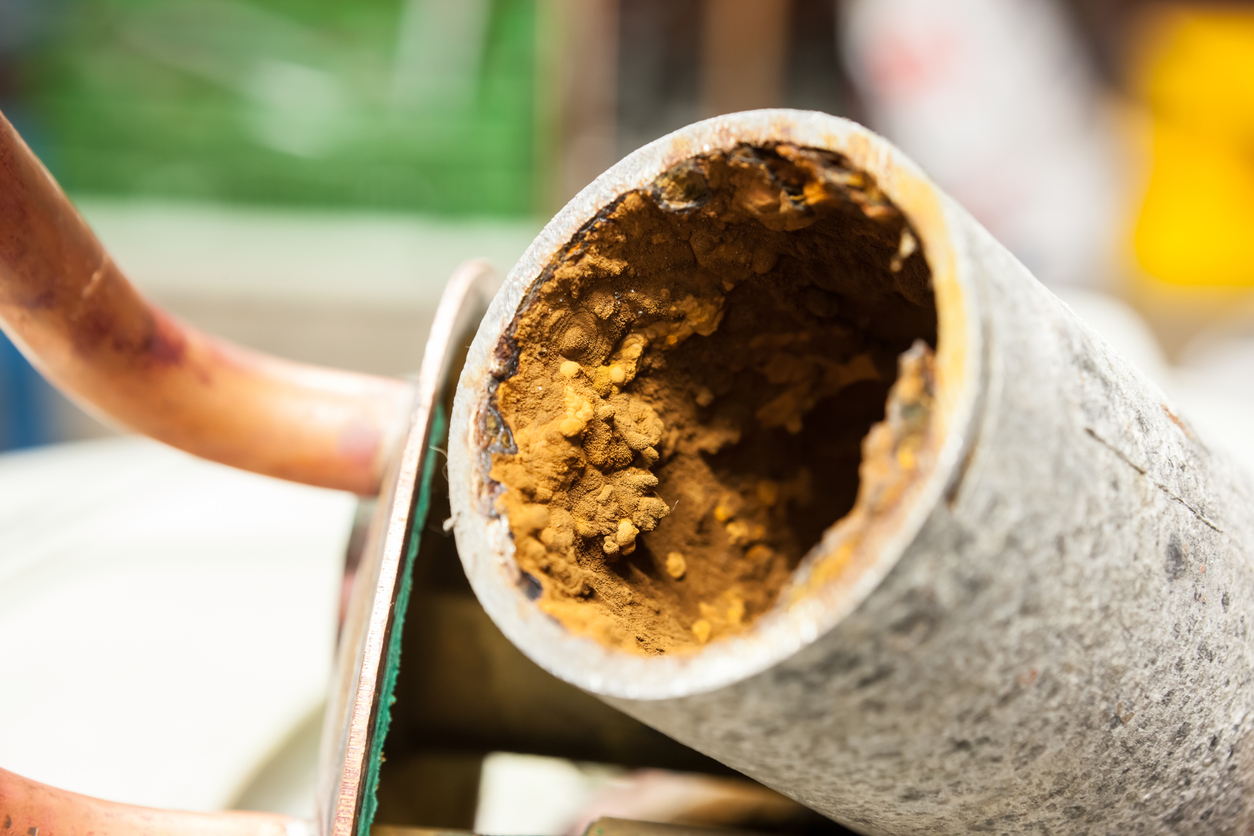If your plumbing has suddenly started making unsettling sounds—banging, whistling, or gurgling—it’s more than just an annoyance. These noises could indicate serious underlying issues, especially during winter when temperature changes put extra stress on your pipes. Understanding what causes these sounds and how to address them can help prevent costly plumbing problems down the road.
In this blog, we’ll explore the common reasons your pipes may be making strange noises, what they mean, and what you can do to fix them.

1. Banging Pipes (Water Hammer Effect)
What Causes It?
Banging pipes, often referred to as “water hammer,” occur when water flow is suddenly stopped or redirected, causing a shockwave inside the pipe. This is particularly common in older plumbing systems without built-in air chambers or pressure regulators.
When It’s a Problem:
- Happens after turning off a faucet or appliance
- The banging noise is loud and sudden
- Pipes rattle against walls or flooring
What to Do About It:
- Install water hammer arrestors, which act as shock absorbers
- Reduce your home’s water pressure using a regulator
- Secure loose pipes with pipe brackets or cushioning
If water hammer is persistent, repiping with PEX may be a long-term solution, as PEX pipes are flexible and absorb shock more effectively than rigid metal pipes.

2. Whistling Pipes (High Water Pressure or Valve Issues)
What Causes It?
Whistling or squealing noises from your plumbing can indicate:
- High water pressure forcing water through narrow spaces
- A worn-out valve or washer inside a faucet
- Sediment buildup restricting water flow
When It’s a Problem:
- Whistling occurs only when using a specific faucet
- The noise worsens when water demand increases
- Fluctuating water pressure
What to Do About It:
- Check and replace worn-out faucet washers or showerheads
- Test your home’s water pressure using a pressure gauge (ideal pressure is 40-60 psi)
- If high pressure is the cause, install a pressure-reducing valve (PRV)
If your pipes are old and full of mineral deposits, repiping your home may be the best long-term fix to restore proper water flow.

3. Gurgling Drains (Blocked or Frozen Pipes)
What Causes It?
Gurgling sounds from your drains usually mean a blockage or poor venting in your plumbing system. This can be caused by:
- Partial drain clogs (hair, grease, soap buildup)
- A frozen or blocked sewage line
- A clogged plumbing vent that prevents air from moving through the system
When It’s a Problem:
- Gurgling happens when flushing toilets or running sinks
- Water drains slowly or backs up
- Unpleasant odors coming from drains
What to Do About It:
- Use a plunger or drain snake to clear minor clogs
- Pour warm (not boiling) water down slow drains to help dissolve blockages
- Check outside vent stacks for blockages (leaves, ice, or debris)
If gurgling is a persistent issue, you may need sewage line repair to resolve a deeper blockage or ventilation issue.

4. Rattling Pipes (Loose or Unsecured Plumbing)
What Causes It?
Pipes that aren’t properly secured can shake and rattle whenever water flows through them. This can be due to:
- Loose pipe brackets
- Water pressure changes
- Expansion and contraction from temperature shifts
When It’s a Problem:
- Rattling occurs whenever water is turned on or off
- The noise is louder near walls or flooring
- No other signs of pressure or blockage issues
What to Do About It:
- Secure pipes using brackets or foam insulation
- If pipes expand and contract with temperature changes, consider repiping with PEX, which is more flexible and resistant to cracking

5. Dripping Sounds (Leaks in Water Lines)
What Causes It?
A dripping noise inside walls or ceilings usually indicates a leak in your water line. Leaks can happen due to:
- Cracked or frozen pipes
- Loose fittings or worn-out seals
- Corrosion in aging pipes
When It’s a Problem:
- You hear dripping but don’t see visible water
- There are damp spots or water stains on walls
- You experience lower water pressure
What to Do About It:
- Shut off your water supply and check for visible leaks
- Inspect pipes under sinks and in the basement for moisture
- Call a professional plumber for water line repair to prevent further damage

When to Call a Professional
If your pipes are making strange noises that won’t go away, it’s time to bring in an expert. At Da Vinci’s Best Plumbing, we provide:
- Water line repair services to fix leaks and pressure issues
- Sewage line repair to clear blockages and backups
- Repiping solutions for long-term plumbing reliability
Ignoring these warning signs can lead to costly damage, so don’t wait until a minor issue turns into a major emergency.

Get Rid of Noisy Pipes with Da Vinci’s Best Plumbing
Strange plumbing noises aren’t just annoying—they could indicate a serious plumbing problem. Whether you need repiping, water line repair, or sewage line repair, we’re here to help.
Call Da Vinci’s Best Plumbing today at (971) 220-8685 or visit our contact page to schedule an inspection.

